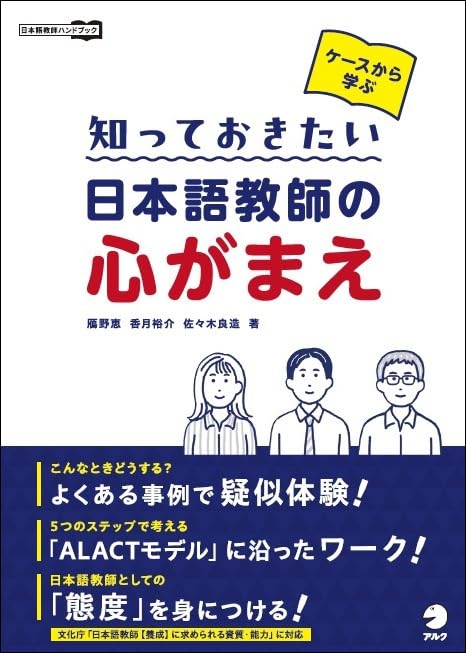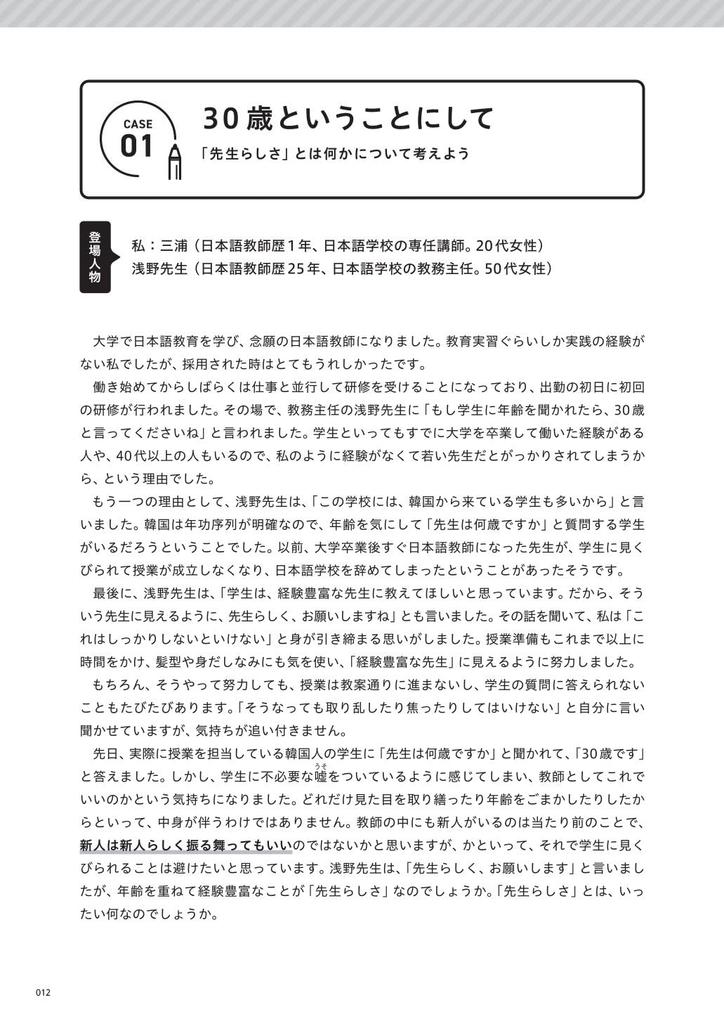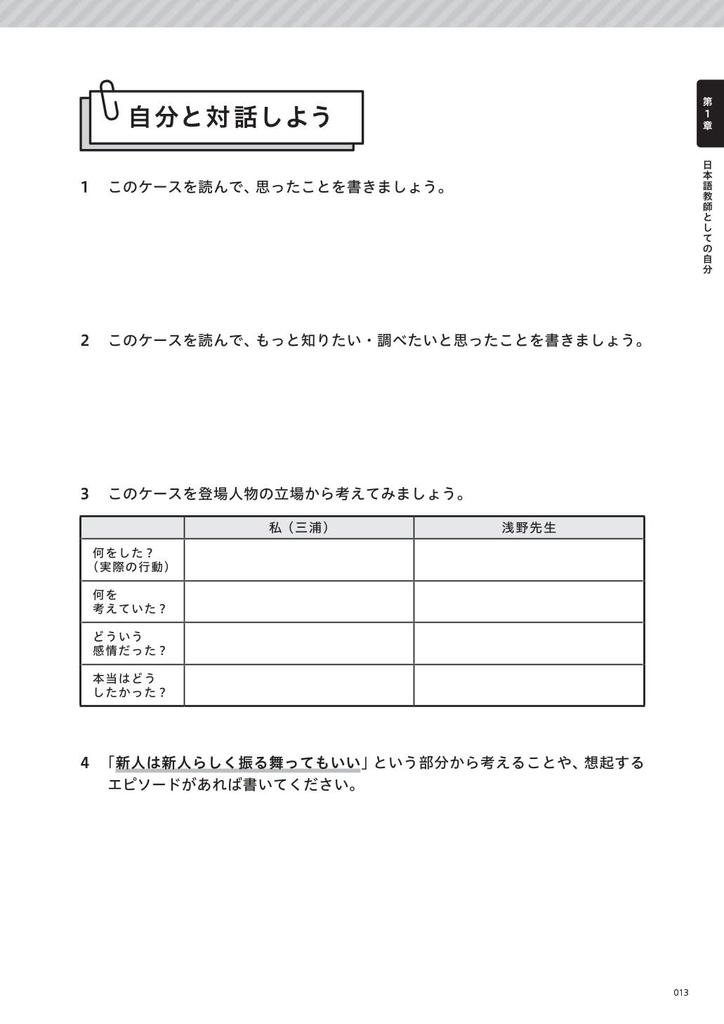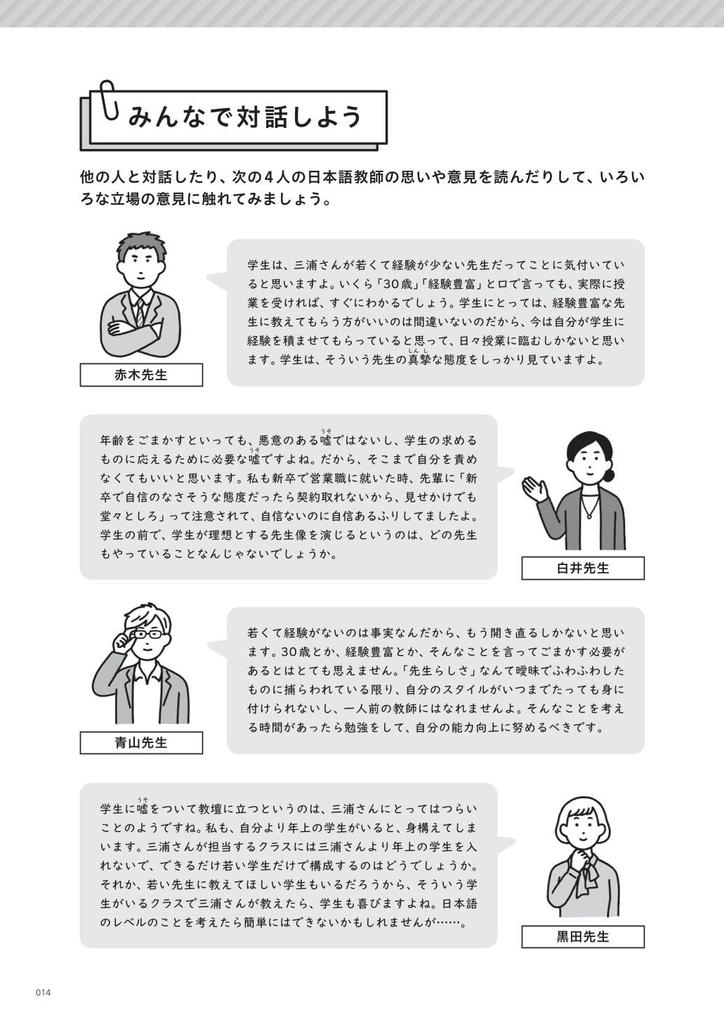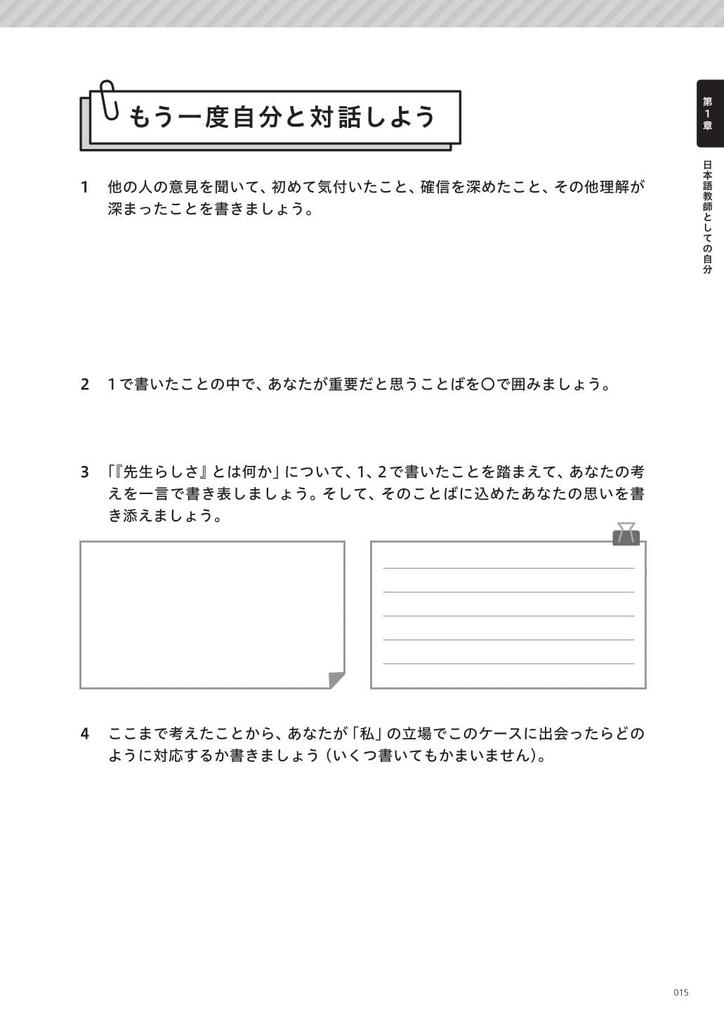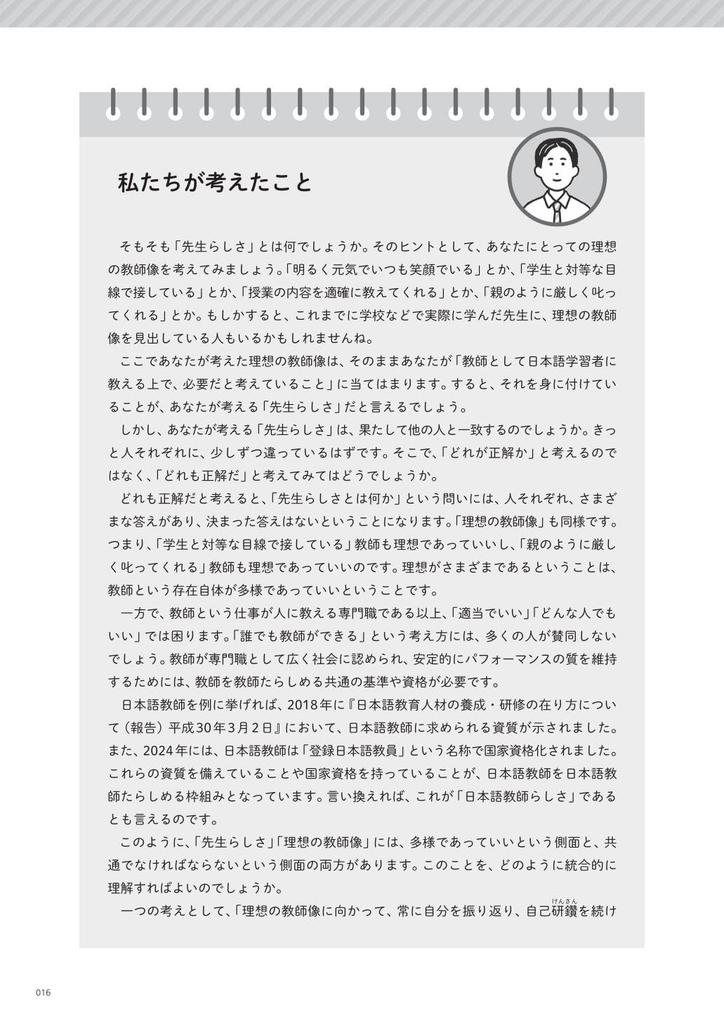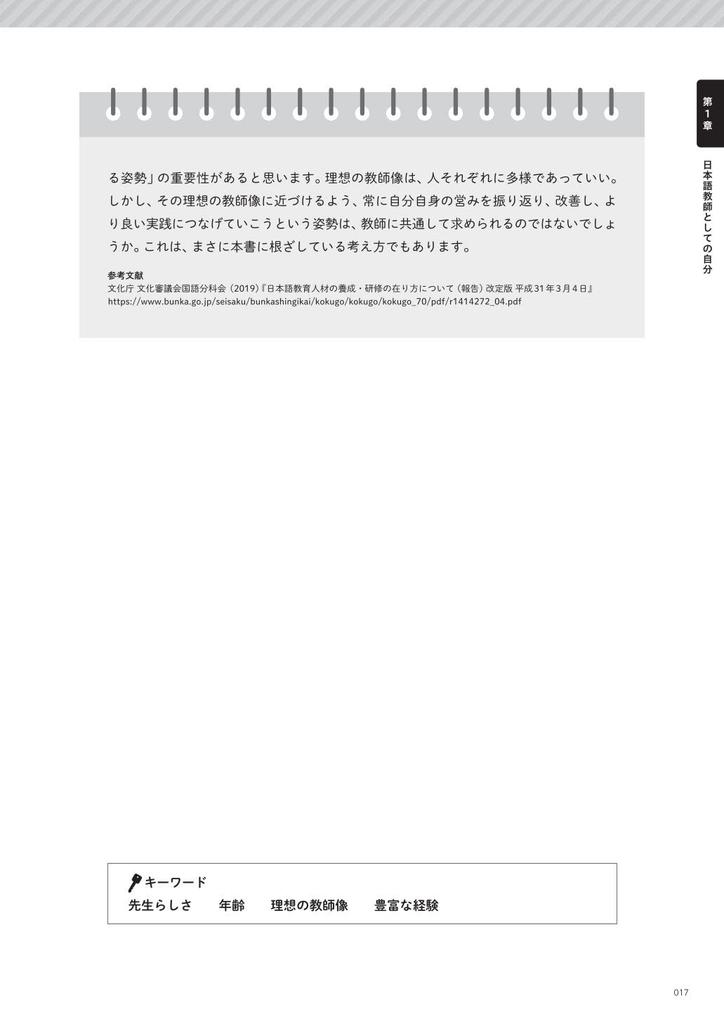Learning from Case Studies: What Japanese Language Teachers Need to Know (Japanese Language Teacher's Handbook)





Beskrivelse
Starting in 2024, the qualification of "Japanese-Language Teacher" will become a national qualification. The Agency for Cultural Affairs' 2019 "Report on the Training and Development of Japanese-Language Education Personnel (Revised Edition)" divides the "Qualities and Abilities Required for Japanese-Language Teacher Training" into three categories: knowledge, skills, and attitude. While knowledge and skills can be learned through classroom and practical training, how do you acquire "attitude"? "Attitude" here refers to a mindset that "presupposes mutual respect for language and culture and strives to understand the learners' backgrounds and current situations." Overcoming problems that arise in Japanese-Language education requires not only knowledge and skills, but also attitude, and having one's own "view of Japanese-Language education" leads to attitude. This book provides "case studies" that simulate common problems in Japanese-Language education, and then reflections on them through "workouts." While the issues vary widely, such as relationships with learners and colleagues, and many of them can be difficult to answer, the workouts based on the "ALACT model" will help you deepen your understanding of the problems. By verbalizing your feelings and engaging with various opinions through dialogue with those around you, you will gain a clearer understanding of your own perspective on Japanese language education.
This workbook is sure to be useful not only for those aspiring to become Japanese language teachers or those who have just started, but also for teachers currently involved in Japanese language teacher training and veteran Japanese language teachers.
[Table of Contents] Chapter 1: Myself as a Japanese language teacher Case 01: Saying I'm 30 years old Case 02: Overworked during my teaching practice!? Case 03: Is Japanese language teaching a woman's occupation? Case 04: Gaining work experience before becoming a Japanese language teacher Case 05: Starting with part-time work Case 06: The future Case 07: What is the purpose of work? Case 08: My teaching experience in Vietnam Case 09: Participating in training
Chapter 2: Facing learners Case 10: Presentation classes are a waste of time Case 11: Classes dealing with social phenomena Case 12: Classes for technical intern trainees Case 13: Is that teaching method really good? Case 14: No matter what I do, it's too easy Case 15: The Missing Student Case 16: Introducing Japanese Culture Over Tea Case 17: International News Case 18: Can the Teacher Speak Indonesian? Case 19: A Sleeping Student Case 20: Are Japanese Women Fawning? Case 21: The Superior or Inferior Question Case 22: Beyond Studying Japanese Case 23: Being Your True Self Case 24: Maintaining Distance with Students
Chapter 3: Relationships with Colleagues and Senior Teachers Case 25: My Colleague's Japanese Case 26: Mountains of Essay Corrections Case 27: Overwhelmed by Lesson Plan Creation! Case 28: Chatting in the Staff Room Case 29: With Teachers of Different Ages and Positions Case 30: Relationships in Japanese Language Learning Support
